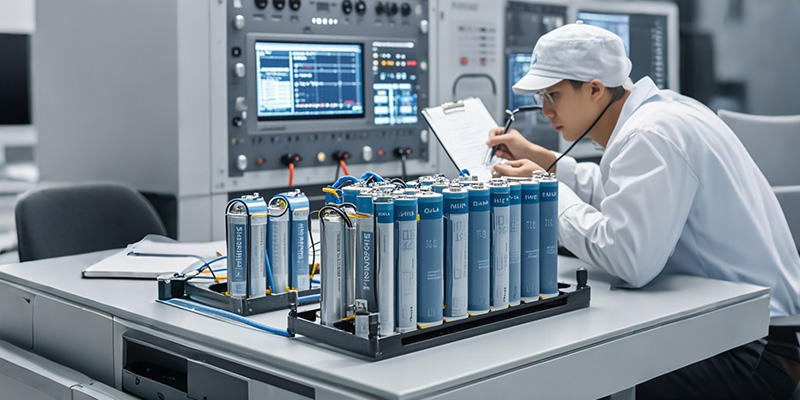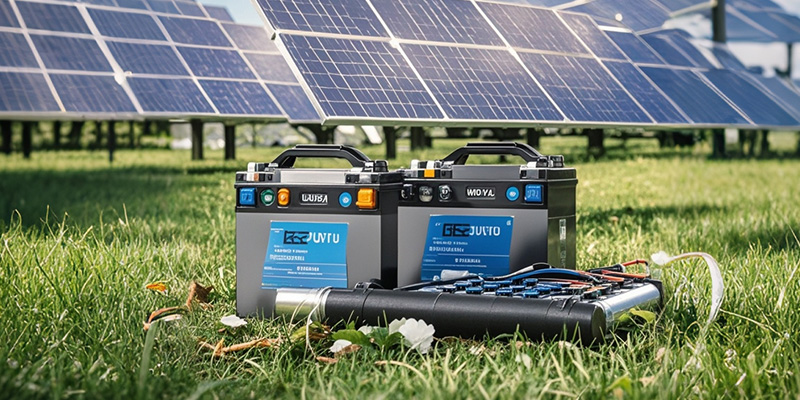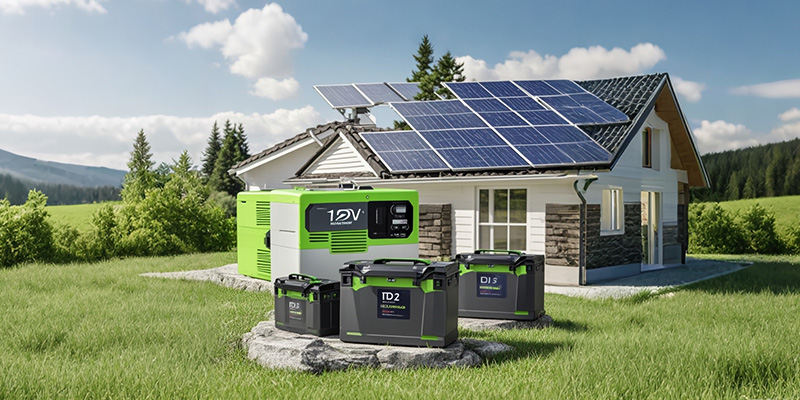The 18650 lithium battery has become a critical component in a wide range of applications, from electric vehicles and portable electronics to energy storage systems. As the European market continues to grow, manufacturers and buyers need to navigate a complex regulatory landscape to ensure compliance and successful market entry. Adhering to EU regulations is essential for guaranteeing the safety, reliability, and environmental responsibility of battery products.
This guide aims to help businesses understand and comply with the key EU regulations for custom 18650 lithium batteries, providing an overview of the requirements and offering practical advice for manufacturers and distributors seeking to succeed in the European market.
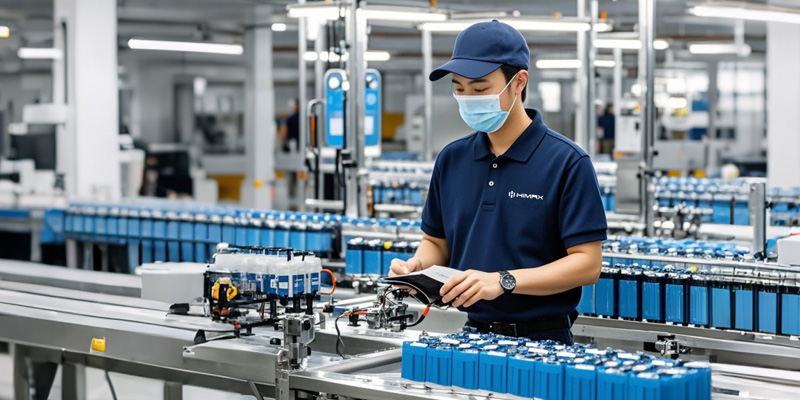
Overview of EU Battery Regulations
The European Union has established a comprehensive regulatory framework to ensure that battery products sold in the region meet strict safety, environmental, and performance standards. Key regulations include the Battery Directive and the Registration, Evaluation, Authorisation, and Restriction of Chemicals (REACH) regulation.
- Battery Directive: The EU Battery Directive (2006/66/EC) aims to minimize the environmental impact of batteries by promoting their safe use, recycling, and disposal. It sets requirements for battery labeling, collection, and recycling to reduce the amount of hazardous substances entering the environment.
- REACH Regulation: The REACH regulation is designed to manage the risks associated with chemicals used in batteries, ensuring that substances are registered, evaluated, and authorized before being marketed in the EU. REACH compliance is essential for battery manufacturers to ensure the safe handling of chemical substances and minimize environmental and health risks.
Complying with these regulations is a fundamental requirement for entering the European market, and failing to do so can result in severe penalties, including fines and product recalls.
Key Safety Standards and Certification Requirements
To sell 18650 lithium batteries in the European market, manufacturers must comply with several important safety standards and certification requirements. These certifications ensure that the products are safe for use and meet the necessary quality standards.
- CE Marking: CE marking is a mandatory requirement for most products sold in the European Economic Area (EEA), including batteries. It indicates that the product complies with EU safety, health, and environmental protection standards. Manufacturers must conduct a conformity assessment and create a technical file to demonstrate compliance.
- UN 38.3 Certification: Lithium batteries, including 18650 cells, must pass the UN 38.3 certification to be transported by air, sea, or land. This certification involves rigorous testing to ensure the battery’s safety during transport, including altitude simulation, thermal testing, shock, and vibration tests.
- RoHS and WEEE Compliance: The Restriction of Hazardous Substances (RoHS) directive restricts the use of certain hazardous materials in batteries, while the Waste Electrical and Electronic Equipment (WEEE) directive ensures that batteries are collected, treated, and recycled properly. Compliance with these directives is critical for ensuring that batteries are environmentally friendly and can be safely disposed of.
- IEC 62133 Standard: The IEC 62133 standard is one of the most important safety standards for rechargeable batteries, including 18650 lithium cells. It covers the requirements and tests for the safe operation of batteries, including protection against overcharging, short circuits, and other potential hazards. Compliance with this standard is crucial for ensuring the safety of battery products in consumer and industrial applications.
Battery Labeling and Traceability
Proper labeling and traceability are essential components of EU battery regulations. Batteries must be labeled with specific information to ensure transparency and compliance with safety and environmental standards.
- Labeling Requirements: Batteries sold in the EU must include labels indicating the battery’s capacity, voltage, chemical composition, and any relevant safety symbols. The CE mark must also be clearly visible on the label. Proper labeling helps consumers make informed decisions and ensures that products meet regulatory requirements.
- Traceability Systems: Traceability is important for identifying the source of any issues that may arise with a battery product. Manufacturers must implement traceability systems that allow them to track the production history and distribution of each battery. This is crucial for ensuring that any defective products can be quickly identified and recalled if necessary.
Proper labeling and traceability not only help manufacturers comply with EU regulations but also build trust with consumers and demonstrate a commitment to quality and safety.
Environmental Responsibility and Recycling Requirements
Environmental responsibility is a key focus of EU battery regulations, and manufacturers and importers must take steps to minimize the environmental impact of their products.
- Battery Recycling Requirements: The Battery Directive sets specific targets for the collection and recycling of used batteries. Manufacturers and importers are required to establish systems for the collection of waste batteries and ensure that they are properly recycled. This helps reduce the environmental impact of batteries and ensures that valuable materials are recovered and reused.
- Producer Responsibility: Under the Battery Directive, producers are responsible for the entire lifecycle of their batteries, including end-of-life disposal. This means that manufacturers must ensure that their products are collected, treated, and recycled in an environmentally responsible manner. Producers must also provide information to consumers on how to dispose of batteries safely.
- Establishing Recycling Networks: To meet recycling targets, manufacturers can establish partnerships with recycling facilities and develop take-back programs to facilitate the collection of used batteries. This helps ensure compliance with EU regulations and supports the circular economy by reducing waste and promoting the reuse of materials.
Market Entry and Supply Chain Management
Navigating the challenges of entering the European market requires careful planning and collaboration with qualified partners. Manufacturers and distributors must address several key challenges to ensure a smooth market entry.
- Import Regulations and Trade Barriers: Importing batteries into the EU involves complying with customs regulations, product standards, and safety requirements. Manufacturers must be prepared to address any trade barriers and provide the necessary documentation to ensure compliance with EU regulations.
- Partnering with Qualified Suppliers: Working with qualified suppliers is essential for ensuring that all components of the battery meet EU standards. A transparent and compliant supply chain helps minimize the risk of non-compliance and ensures that the final product meets regulatory requirements.
- Practical Strategies for Market Entry: To reduce market entry barriers, manufacturers can consider establishing localized warehouses and distribution centers within the EU. This not only helps reduce shipping times and costs but also ensures that products are readily available to meet customer demand. Partnering with local distributors and establishing relationships with compliance experts can also help navigate the complexities of EU regulations.
Advantages of Himax Electronics
Himax Electronics is a leading provider of high-quality lithium battery solutions, with extensive experience in the research, development, and production of 18650 lithium batteries. Himax is committed to delivering products that meet and exceed EU regulatory requirements, ensuring that customers receive safe, reliable, and compliant battery solutions.
- Technical Expertise in 18650 Lithium Batteries: Himax has a deep understanding of the technical requirements for 18650 lithium batteries, and our products are designed to meet the highest standards of performance and safety. Our team of experts works closely with clients to develop custom solutions that are tailored to their specific needs and comply with all relevant regulations.
- Compliance with EU Standards: Himax products are fully compliant with key EU regulations, including CE marking, UN 38.3 certification, RoHS, WEEE, and IEC 62133 standards. We prioritize quality control and rigorous testing to ensure that our batteries are safe, reliable, and environmentally responsible.
- Supporting Market Entry for Clients: Himax is dedicated to helping clients successfully enter the European market by providing comprehensive support, from product design and certification to logistics and after-sales service. Our commitment to quality and regulatory compliance ensures that our clients can confidently bring their products to market without the risk of regulatory setbacks.
About Himax Electronics
Himax Electronics is a leader in the lithium battery industry, specializing in the production of high-performance energy storage solutions for a wide range of applications. With a focus on quality, reliability, and customer satisfaction, Himax has established itself as a trusted partner for businesses looking to develop custom battery solutions.
Our extensive experience in battery research and development, combined with our commitment to innovation, allows us to provide cutting-edge products that meet the needs of an evolving market. At Himax, we are dedicated to supporting our clients through every stage of the product lifecycle, ensuring that they receive the best possible solutions for their energy storage needs.
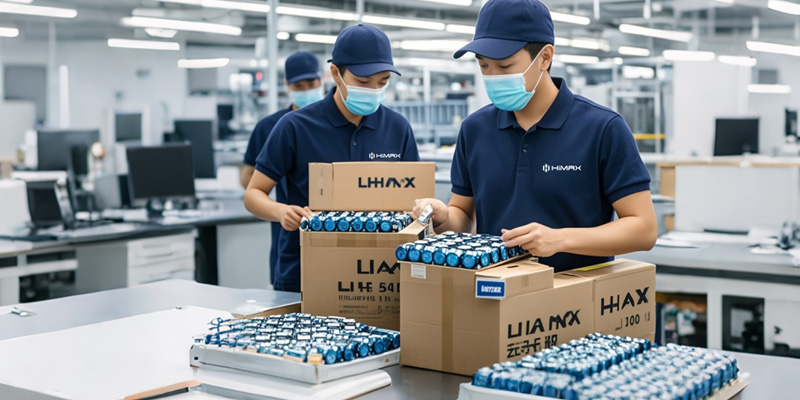
Conclusion
Navigating the complex regulatory landscape of the European market is essential for manufacturers and buyers of custom 18650 lithium batteries. Understanding and complying with key EU regulations, such as the Battery Directive, REACH, and various safety standards, is crucial for ensuring product safety, environmental responsibility, and market success.
Choosing a qualified supplier like Himax Electronics is vital for ensuring that your products meet all regulatory requirements and are competitive in the European market. Himax’s commitment to quality, compliance, and customer support makes us the ideal partner for businesses looking to enter the European lithium battery market with confidence. By working with Himax, companies can achieve regulatory compliance, reduce market entry barriers, and deliver reliable, high-quality battery solutions to their customers.

